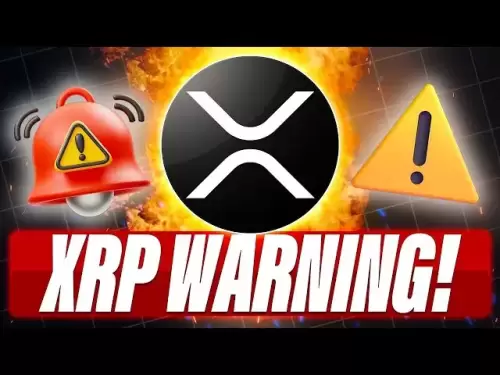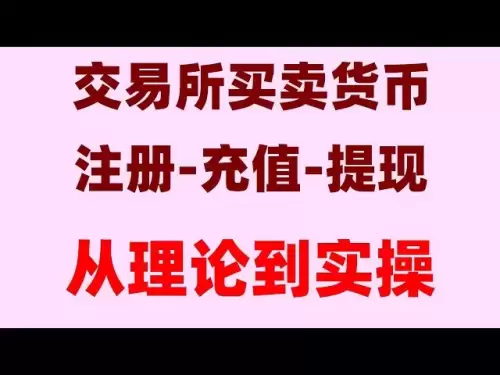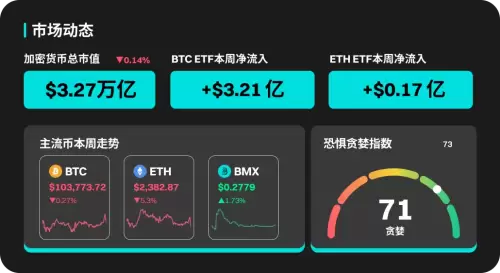 |
|
 |
|
 |
|
 |
|
 |
|
 |
|
 |
|
 |
|
 |
|
 |
|
 |
|
 |
|
 |
|
 |
|
 |
|
抜本的な新しい研究は、分散型ガバナンスモデルの進化、約束、および落とし穴、特にブロックチェーン駆動のデジタルコモンズに出現したものを分析します。

A sweeping new study has dissected the evolution, promise, and pitfalls of decentralized governance models, especially those emerging in the blockchain-powered digital commons. Titled “Decentralizing Governance: Exploring the Dynamics and Challenges of Digital Commons and DAOs” and published in Frontiers in Blockchain, the study examines how Decentralized Autonomous Organizations (DAOs), tokenized decision systems, and algorithmic rule enforcement are transforming democratic participation and potentially replicating the very centralization they aim to dismantle.
抜本的な新しい研究は、分散型ガバナンスモデル、特にブロックチェーン駆動のデジタルコモンズに出現したガバナンスモデルの進化、約束、および落とし穴を分析しました。 「ガバナンスの分散化:デジタルコモンズとDAOのダイナミクスと課題の探求」と題され、ブロックチェーンのフロンティアで公開されたこの調査では、分散化された自律組織(DAO)、トークン化された決定システム、およびアルゴリズムの規則施行が、民主的な参加を変え、潜在的に中央集権化を潜在的に再現する可能性があることを調べます。
Using Elinor Ostrom’s foundational principles of commons governance as a theoretical lens, the paper examines how blockchain tools can improve the regulation of shared digital resources. It presents a global critique of DAO mechanisms, from their financial tokenization structures to their environmental and geopolitical implications, revealing that without thoughtful design and legal clarity, DAOs risk becoming exclusionary, plutocratic, and even neocolonial.
Elinor OstromのCommons Governance of Commons Governanceの基礎原則を理論的レンズとして使用して、このペーパーでは、ブロックチェーンツールが共有デジタルリソースの規制を改善する方法を検証します。それは、彼らの財政的なトークン化構造から環境的および地政学的な意味合いまで、DAOメカニズムに対するグローバルな批判を提示し、思慮深い設計と法的明確性がなければ、DAOSのリスクが排他的であり、金権的で、そして新植民地でさえあることを明らかにします。
Can blockchain-based DAOs really democratize digital governance?
ブロックチェーンベースのDAOはデジタルガバナンスを本当に民主化できますか?
The study closely examines how decentralized governance systems align with Ostrom’s eight principles for managing common-pool resources. These principles call for locally adaptable rules, collective choice arrangements, monitoring, conflict resolution, and nested governance layers. The paper finds that while blockchain tools like smart contracts, tokenization, and quadratic voting offer scalable self-regulation and transparency, they often fall short in inclusivity and participation.
この調査では、分散型ガバナンスシステムが、一般的なプールリソースを管理するためのOstromの8つの原則とどのように整合するかを綿密に検証しています。これらの原則には、地元の適応可能なルール、集団的選択の取り決め、監視、紛争解決、ネストされたガバナンスレイヤーが必要です。この論文は、スマートコントラクト、トークン化、2次投票などのブロックチェーンツールがスケーラブルな自己調節と透明性を提供する一方で、包括性と参加が不足していることが多いことを発見しています。
DAOs such as MakerDAO, MolochDAO, and Commons Stack are cited as examples of decentralized systems that promise participatory governance but often centralize decision-making around early token holders or well-funded delegates. The study highlights how token-weighted voting can quickly devolve into plutocracy, with a small number of large token holders disproportionately influencing governance outcomes. For instance, 53% of DAOs surveyed were found to be largely inactive, with minimal voter turnout as DAO size increased. In Decentraland, average voter participation per proposal was less than 1%.
Makerdao、Molochdao、Commons StackなどのDAOは、参加型ガバナンスを約束しますが、多くの場合、初期のトークン保有者や資金提供された代表者をめぐる意思決定を集中させる分散型システムの例として引用されています。この研究では、トークン加重投票が、少数の大規模なトークンホルダーがガバナンスの結果に不釣り合いに影響を与え、どのように金権政権に委ねられるかを強調しています。たとえば、調査対象のDAOSの53%は大部分が非アクティブであることがわかりました。 Decentralandでは、提案ごとの平均投票者参加は1%未満でした。
To mitigate voter apathy and encourage ongoing engagement, mechanisms like delegated voting, employed in MakerDAO and Uniswap, allow users to assign their votes to representatives. However, these often replicate traditional power hierarchies and reduce broader community engagement. Hybrid structures, like the bicameral governance model of the Optimism Collective, combine token-based and representative systems to address these inefficiencies, but the study notes they still risk re-centralizing authority.
有権者の無関心を緩和し、継続的な関与を奨励するために、MakerdaoやUniswapで雇用されている委任投票などのメカニズムにより、ユーザーは投票を代表者に割り当てることができます。ただし、これらはしばしば従来の電力階層を複製し、より広範なコミュニティの関与を減らします。楽観的集団の二院制ガバナンスモデルのようなハイブリッド構造は、これらの非効率性に対処するためにトークンベースのシステムと代表的なシステムを組み合わせていますが、この研究は、再集団の権限を依然としてリスクがあると指摘しています。
What tools exist to mitigate centralization in DAO governance?
DAOガバナンスの集中化を緩和するためのツールは何ですか?
To curb centralization and increase equitable participation, the study highlights several innovative governance models:
集中化を抑制し、公平な参加を増やすために、この研究ではいくつかの革新的なガバナンスモデルを強調しています。
Quadratic Voting and Funding: Systems like Gitcoin Grants diminish the disproportionate influence of wealthy stakeholders by applying a nonlinear cost to voting power. These models amplify the collective impact of small contributors, closely aligning with Ostrom’s principle of congruent rules and widespread participation. For instance, quadratic voting and funding systems have been instrumental in mobilizing diverse communities around open-source software development and public goods contributions.
二次投票と資金調達:Gitcoinのようなシステムは、投票権に非線形コストを適用することにより、裕福な利害関係者の不均衡な影響を減らします。これらのモデルは、オストロムの一致ルールと広範な参加の原則と密接に整合して、小さな貢献者の集合的な影響を増幅します。たとえば、二次投票および資金調達システムは、オープンソースのソフトウェア開発と公共財の貢献を中心に、多様なコミュニティを動員するのに役立ちました。
Reputation-Based Voting: In contrast to token-weighted systems, this model allocates voting power based on a user’s contributions, actions, and trust score, rewarding long-term engagement over financial investment. It supports rule formalization and monitoring, crucial for Ostrom’s framework. However, this model faces risks like sybil attacks and bias unless it’s integrated with cryptographic identity verification to ensure the authenticity of participants.
評判に基づいた投票:トークン加重システムとは対照的に、このモデルは、ユーザーの貢献、行動、信頼スコアに基づいて投票力を割り当て、金融投資に対する長期的な関与に報いることになります。オストロムのフレームワークにとって重要なルールの形式化と監視をサポートしています。ただし、このモデルは、参加者の信頼性を確保するために暗号化のアイデンティティ検証と統合されていない限り、シビルの攻撃やバイアスなどのリスクに直面しています。
Soulbound Tokens (SBTs): These non-transferable tokens serve as proof of participation and reputation within a specific community or initiative. Since they cannot be bought or sold, SBTs align governance influence with meritocratic input rather than wealth accumulation, closely aligning with Ostrom’s principle of legitimacy. However, they also raise concerns about privacy and the need for fair distribution systems to prevent elite capture.
Soulbound Tokens(SBTS):これらの譲渡不可能なトークンは、特定のコミュニティまたはイニシアチブ内の参加と評判の証拠として機能します。それらを売買することはできないため、SBTSは、オストロムの正当性の原則に密接に整合して、富の蓄積ではなく、実力主義的なインプットにガバナンスの影響を整列させます。しかし、彼らはまた、エリートの捕獲を防ぐためのプライバシーと公正な配布システムの必要性に関する懸念を提起します。
Rotating Governance Councils: By implementing term-limited governance roles and staggered transitions, DAOs can prevent the entrenches of power and introduce diverse perspectives over time. This model closely reflects Ostrom’s principles of accountability and dynamic rule adaptation, varying according to local conditions. It also requires robust mentorship and transition protocols to ensure continuity and knowledge transfer between council members.
ガバナンス評議会の回転:期間制限されたガバナンスの役割とずらして移行を実装することにより、DAOは権力の定着を防ぎ、時間の経過とともに多様な視点を導入することができます。このモデルは、ローカル条件によって異なる、説明責任と動的なルール適応のオストロムの原則を密接に反映しています。また、評議員間の継続性と知識の移転を確保するために、堅牢なメンターシップおよび移行プロトコルが必要です。
The study emphasizes that these mechanisms must be contextually applied and embedded in broader governance frameworks which balance efficiency, transparency, and inclusivity.
この研究では、これらのメカニズムは、効率、透明性、包括性のバランスをとるより広範なガバナンスフレームワークに文脈的に適用および埋め込まれなければならないことを強調しています。
The pressing legal, environmental, and ethical challenges faced by DAOs
DAOSが直面している緊急の法的、環境的、倫理的課題
Despite their innovative promise, DAOs face critical challenges beyond internal governance. Legally, most jurisdictions lack comprehensive frameworks to recognize DAO structures, allocate liability, and define their cross-border operations. The study examines the Wyoming DAO LLC law as an early effort to grant DAOs limited liability personhood, enabling them to own assets, enter contracts, and sue or be sued. However, critics argue that this framework imposes traditional corporate norms on decentralized systems, risking re-centralization and setting the stage for jurisdictional conflicts.
彼らの革新的な約束にもかかわらず、DAOSは内部ガバナンスを超えて重要な課題に直面しています。法的には、ほとんどの管轄区域には、DAO構造を認識し、責任を割り当て、国境を越えた運用を定義するための包括的なフレームワークがありません。この調査では、ワイオミングダオLLC法を、DAOS有限責任担当者を付与し、資産を所有し、契約を結び、訴訟を起こすか、訴えられるようにするための初期の努力として検討しています。しかし、批評家は、この枠組みが分散型システムに伝統的な企業規範を課し、再集権化を危険にさらすことを課し、管轄権の紛争の段階を設定すると主張しています。
The paper also delves into the environmental footprint of blockchain infrastructure, especially in Proof-of-Work (PoW) systems used by Bitcoin and early Ethereum. Case studies from Chelan County, Washington, and Dresden, New York demonstrate how cryptocurrency mining has strained local energy grids,
このペーパーは、特にビットコインと初期のイーサリアムが使用する職場証明(POW)システムにおいて、ブロックチェーンインフラストラクチャの環境フットプリントを掘り下げます。ワシントン州チェラン郡とニューヨーク州ドレスデンのケーススタディは、暗号通貨の採掘がどのように局所エネルギーグリッドを緊張させたかを示しています。
免責事項:info@kdj.com
提供される情報は取引に関するアドバイスではありません。 kdj.com は、この記事で提供される情報に基づいて行われた投資に対して一切の責任を負いません。暗号通貨は変動性が高いため、十分な調査を行った上で慎重に投資することを強くお勧めします。
このウェブサイトで使用されているコンテンツが著作権を侵害していると思われる場合は、直ちに当社 (info@kdj.com) までご連絡ください。速やかに削除させていただきます。





























































